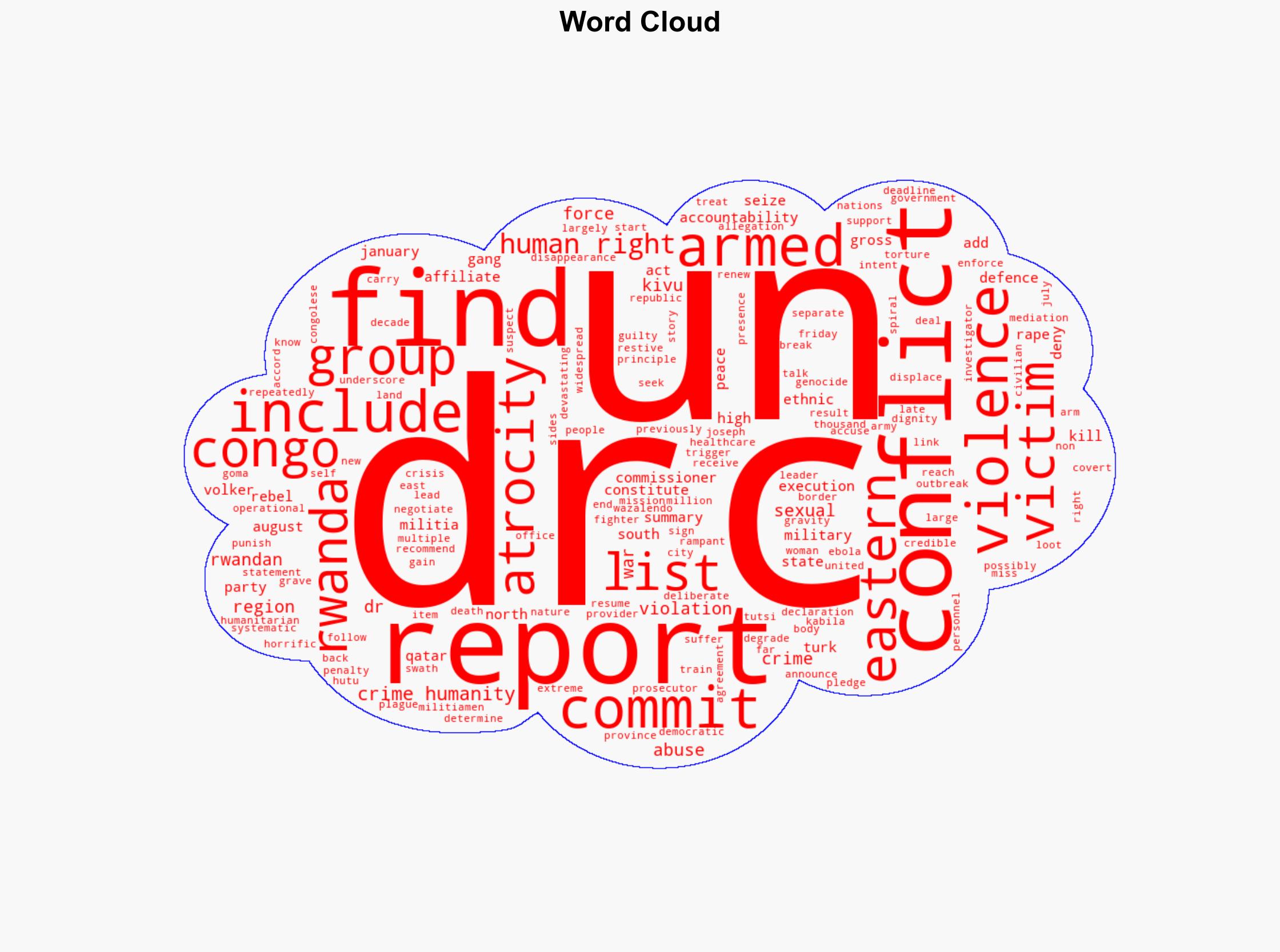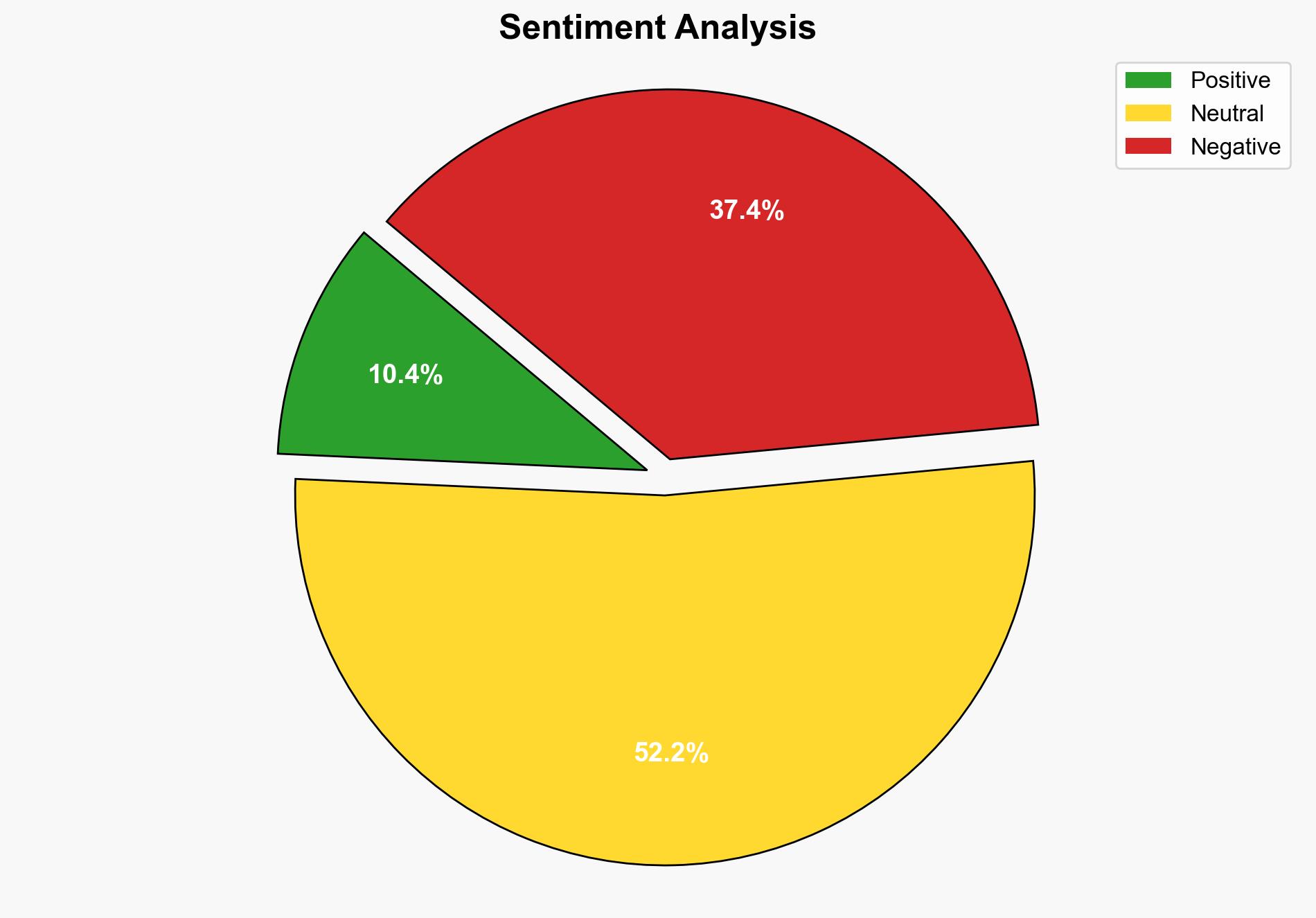UN suspects all sides in DR Congo conflict guilty of war crimes – Al Jazeera English
Published on: 2025-09-05
Intelligence Report: UN suspects all sides in DR Congo conflict guilty of war crimes – Al Jazeera English
1. BLUF (Bottom Line Up Front)
The most supported hypothesis is that all parties involved in the DR Congo conflict, including Rwandan-backed militias and Congolese military affiliates, are committing war crimes and crimes against humanity. This assessment is based on UN investigations and reports of systematic abuses. Confidence in this hypothesis is moderate due to potential biases and incomplete data. Recommended action includes international diplomatic pressure for accountability and support for peace negotiations.
2. Competing Hypotheses
1. **Hypothesis A**: All parties involved in the DR Congo conflict are committing war crimes and crimes against humanity. This is supported by UN reports of summary executions, sexual violence, and other atrocities by both Rwandan-backed militias and Congolese military affiliates.
2. **Hypothesis B**: The allegations of war crimes are exaggerated or manipulated by certain parties to gain political leverage or international support. This hypothesis considers the potential for misinformation or biased reporting due to the complex geopolitical dynamics in the region.
Using the Analysis of Competing Hypotheses (ACH) 2.0, Hypothesis A is better supported due to the consistency of reports from multiple independent sources, including the UN and human rights organizations, despite some potential biases.
3. Key Assumptions and Red Flags
– **Assumptions**: The UN reports are accurate and unbiased. All parties have equal access to resources and are equally capable of committing atrocities.
– **Red Flags**: Potential bias in UN reports due to political pressures. Incomplete data on the involvement of external actors like Rwanda.
– **Blind Spots**: Lack of direct evidence linking specific individuals to crimes. Limited access to conflict zones for independent verification.
4. Implications and Strategic Risks
The ongoing conflict and allegations of war crimes pose significant risks for regional stability. Potential escalation could lead to further humanitarian crises and destabilize neighboring countries. The involvement of external actors like Rwanda increases geopolitical tensions and complicates peace efforts. Economic impacts include disruption of regional trade and increased costs for humanitarian aid.
5. Recommendations and Outlook
- Increase diplomatic efforts to hold accountable those responsible for war crimes through international courts or sanctions.
- Support peace negotiations and mediation efforts, possibly involving neutral third-party countries.
- Enhance monitoring and reporting mechanisms to ensure unbiased and comprehensive data collection.
- Scenario-based projections:
- Best Case: Successful peace negotiations lead to a reduction in violence and improved humanitarian conditions.
- Worst Case: Escalation of conflict results in further atrocities and regional destabilization.
- Most Likely: Continued low-intensity conflict with sporadic peace talks and ongoing humanitarian challenges.
6. Key Individuals and Entities
– Volker Turk
– Joseph Kabila
– Rwandan Defence Force
7. Thematic Tags
national security threats, human rights violations, regional conflict, geopolitical tensions





